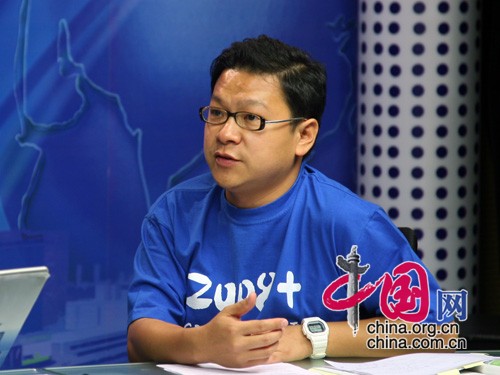
|
|
On August 5, China.org.cn spoke to Lu Sicheng, of Greenpeace China about the organization's report on Beijing's environmental protection efforts.
|
China.org.cn:
As you say Beijing took measures to improve air quality, such as relocating Capital Steel, traffic control measures, etc. But in the views of experts, how much impact have these measures had?
Lu Sicheng: From the viewpoint of environmental protection, we don't focus on short term measures. What's important is to take advantage of the Olympics to popularize new technologies and introduce them to other cities in China. China has severe environment problems and Beijing can set a good example and also act as a testing ground for new technologies. Remember the slogan ‘Surpass Beijing, Surpass 2008’.
It’s important to improve air quality for the next two weeks, but much more important is what happens after the Games.
China.org.cn: China is still a developing country, and development is given top priority. But shouldn't we adopt the standards used in developed countries to measure our environmental performance?
Lu Sicheng: Developing countries and developed countries are at different stages. Developed countries have been emitting greenhouse gases for 150-200 years. China's economy is booming, and is either first or second in the world in terms of emissions, but this is a recent development. Greenhouse emissions from China were very small even 20 years ago. And the per capita amounts are much less than in developed countries. We can't ignore these factors when talking about China’s responsibility in international greenhouse reduction. Greenpeace recognizes the special interests of developing countries. All countries share responsibility but have distinct interests and duties.
We need to set up unified standards in some areas, especially air pollution. Some countries are close to the standard, others have a long way to go. A common standard would set a common goal. No-one thinks China has less right to clean air and clean water than America; the key point is how to achieve it gradually.
China.org.cn: My last question is, why did Greenpeace bring out an environmental assessment report specially for the Olympics?
Lu Sicheng: The Olympics is not only the world's biggest sports event but the world's biggest media event. For two weeks the attention of the world is on the host city and country. This gives us a chance to tell the world what we are doing for environment protection. Thanks to our efforts, the International Olympic Committee has now made environmental protection one of the three pillars of the Olympics, the others being culture and sports.
(China.org.cn by Wu Jin and Hou Xiaoying, August 10, 2008)